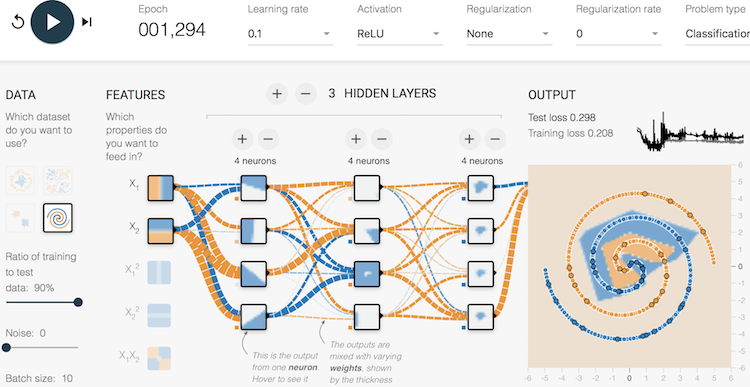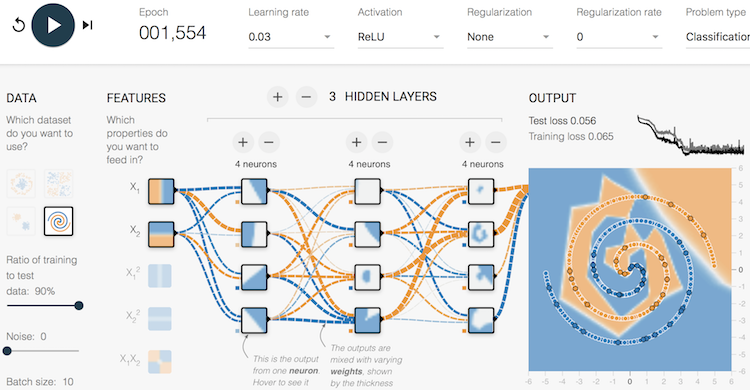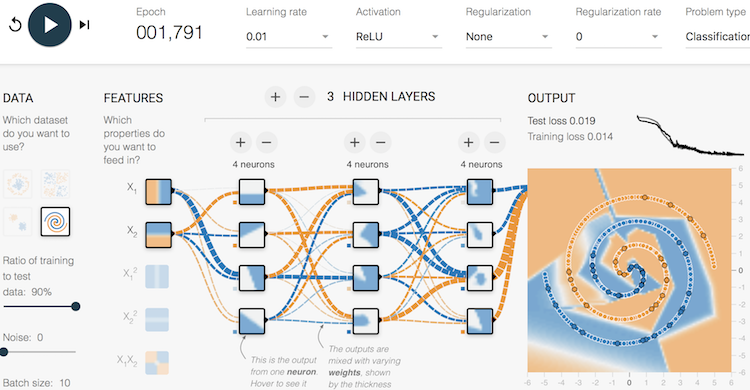Neural Network Tutorials - Herong's Tutorial Examples - v1.22, by Herong Yang
Impact of Learning Rate
This section provides a tutorial example to demonstrate the impact of the learning rate of a neural network model. If a neural network model starts to generate an oscillating training loss, the learning rate can be reduced to help to a better solution.
In the classical neural network model, the learning rate is important when error function has rough surface near the bottom. A learning rate that is too large will cause the model to oscillate over a possible solution.
If you look at tests we did in the previous tutorial, we will see that the model with 3 layers and 4 neurons per layer failed converge to a better solution. A learning rate of 0.1 was used and it was probable too large, because training loss history is an oscillating curve.

If you reduce the learning rate to 0.03 and play it again. The model will converge further and stops with a test loss of 0.056.

If you reduce the learning rate to 0.01 and play it again. The model will converge further and stops with a test loss of 0.019.

Conclusion, if a neural network model starts to generate an oscillating training loss, the learning rate can be reduced to help to a better solution.
Table of Contents
►Deep Playground for Classical Neural Networks
Impact of Extra Input Features
Impact of Additional Hidden Layers and Neurons
Impact of Neural Network Configuration
Impact of Activation Functions
Building Neural Networks with Python
Simple Example of Neural Networks
TensorFlow - Machine Learning Platform
PyTorch - Machine Learning Platform
CNN (Convolutional Neural Network)
RNN (Recurrent Neural Network)
GAN (Generative Adversarial Network)